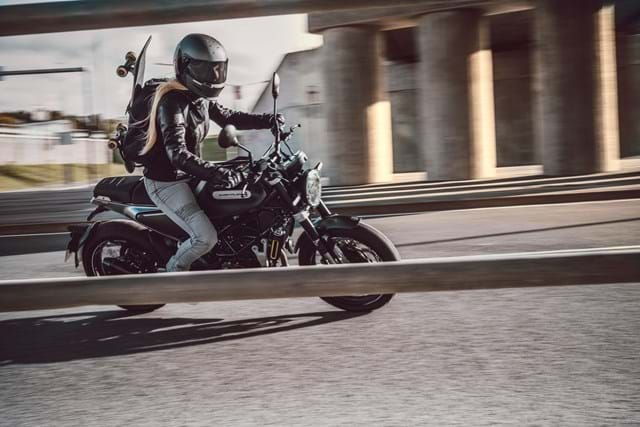Motorbike Road Tax: The Complete Guide (2022)

What is it?
Vehicle Excise Duty (VED), better known as Road Tax, is simply a personal tax for driving vehicles on UK public roads.
Originally it was ring-fenced for road improvements but now it all goes into one government pot of money, so it doesn't directly fund the public road network. However some of the pot does inevitably filter down to the local authorities who do look after the roads.
VED is currently collected and enforced by the Driver and Vehicle Licensing Agency (DLVA). It does vary by vehicle class though and unlike cars, which are taxed based on emissions, motorbikes are taxed by engine size.
Who has to register for it?
Anyone driving or parking their vehicle on UK public roads. You can check the VED and MOT status of any vehicle by typing the number plate (VRM) into this handy Gov checking tool.
How do you register for it?
You can use the DVLA website, call into your local Post Office or call the DVLA on 03001 234 321.
If you have a V11 reminder from the DVLA they should already have a record of the insurance and MOT status but if not you will need the V5C logbook in your name (or the V5C/2 green 'new keeper' slip), proof of insurance and a valid MOT certificate (if the vehicle is over 3 ears old).
How much does it cost?
Rates for motorcycles (quadbikes, scooters, motorbikes) with or without a sidecar:
Rates for tricycles (under 450 kg unladen):
All vehicles falling under the legal definition of a "motorcycle" or "tricycle" must be registered for VED for use on public roads however there are some exceptions around actually paying for it i.e. it is possible to register for VED but not actually hand over any money. Notably 100% electric, classic and for use by a driver registered as disabled.
The VED rates do change over time and from Government to Government, so check the current rates on the Gov website.
Do you have to pay for electric bikes?
No, but only if it is 100% battery powered. Hybrids will be treated based on the capacity of the engine.
Do you have to pay for classic bikes?
No, but only if the bike was manufactured or registered over 40 years ago.
Do disabled drivers have to pay?
No, but only if they receive one of these benefits:
- Higher rate mobility component of Disability Living Allowance (DLA)
- Enhanced rate mobility component of Personal Independence Payment (PIP)
- War Pensioners’ Mobility Supplement
- Armed Forces Independence Payment
Find out more on the Gov website.
Do I need to display a paper tax disc?
From 1st October 2014 physical tax discs no longer need to be displayed and the VED no longer transfers automatically when you sell the vehicle.
How does it work with buying and selling a bike?
When you sell your bike the remaining full months of VED are automatically refunded to you by the DVLA and at that point the vehicle is untaxed. The same thing happens if you scrap the vehicle or take it off the road and complete a Statutory Off Road Notice (SORN).
Any new owner must register for VED before they can ride it on public roads.
What happens if my bike is an insurance write off?
If the insurer declares it a write off you are essentially selling it to them and any remaining whole months of VED will be refunded to you. There is a form on the Gov website to let them know.
Can I ride without VED?
It's not a good idea. Not having VED is a revenue offence rather than a motoring offence, resulting in a fine but not points on your licence. However the Police do have number plate recognition cameras looking out for vehicles without VED on public roads.
